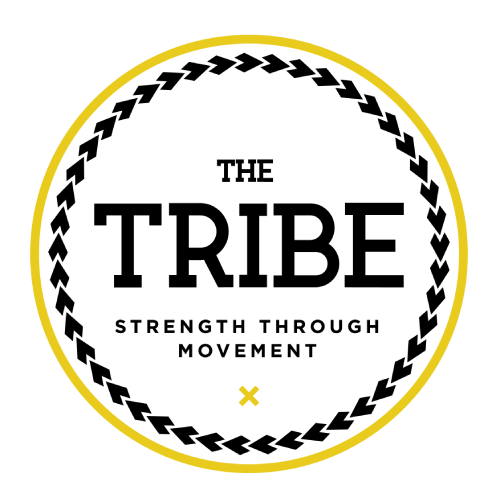Functional fitness is a type of training that focuses on movements that mimic everyday activities and improve overall fitness. With the rise in popularity of functional fitness studios, it’s becoming clear that this style of exercise is the future of fitness.
Here, we’ll take an in-depth look at the benefits of functional fitness and why it’s becoming the preferred form of exercise for many people.
What Is Functional Fitness?
Functional fitness sessions include exercises that train the body to move in natural and efficient ways to improve overall fitness and health. Functional fitness is designed to help individuals perform better in everyday activities, such as lifting groceries, getting up off the floor, carrying heavy objects, or playing with children.
By using and strengthening muscles in a similar way to how you use them in daily life, you can make it easier to complete daily tasks, improve your quality of life, and reduce your risk of injury.
Functional fitness prioritises compound exercises that call on multiple joints and muscles to work in unison. These compound movements promote the development of practical strength that can make everyday tasks easier to complete.
Examples of functional fitness exercises include:
- Pushups
- Lunges
- Squats
- Burpees
- Deadlifts
The Benefits of Functional Fitness
Increases Coordination, Posture, Flexibility, and Balance
Functional fitness requires the use of multiple muscles working in unison to complete many of the moves. Functional training helps enhance the range of motion, flexibility, coordination, posture, and balance. By improving the overall function of your body, you’ll see benefits in the gym, in sports, in activities, and day-to-day tasks.
Reduced Risk of Injury
Since many functional fitness exercises require you to utilise smaller muscle groups and surrounding ligaments to stabilise the larger ones, it is an excellent way to reduce your chance of injury in daily life.
By mimicking movement patterns that you do in your everyday life, functional fitness can help your body handle physical stress better, prevent overtraining, and promote better posture.to cope with daily physical demands. This can help prevent falls and strains, especially as individuals get older.
Improved Cardiovascular Fitness
Along with its ability to translate exercise movements into practical moves in everyday life, functional training also offers many of the benefits of traditional exercise. Functional fitness is an effective way to improve your cardiovascular health.
Increased metabolism and Weight Loss
Consistent physical activity, such as functional training, supports healthy metabolism and aids in weight loss efforts. Functional fitness exercises are designed to increase your heart rate. And generally speaking, the harder you exercise, the higher your heart rate. Weight loss is achieved by being in a caloric deficit, right? So the harder you work out the higher your heart rate. This results in more calories burnt, which in turn means you’re going to be in more of a deficit.
Improved Ability to Perform Everyday Tasks
Functional fitness is excellent for improving the ability to perform everyday tasks with ease. By improving overall wellness, developing stability, increasing mobility, and building endurance, functional fitness can help enhance how you go about your daily life.
As opposed to traditional workouts, functional fitness helps improve the ability to successfully perform everyday activities, such as carrying grocery bags, climbing a flight of stairs, getting up off the floor, or bending over to pick something up.
Build Strength and Endurance
Functional fitness can have a positive impact on agility, power, endurance, speed, and muscle strength. These improvements will translate to daily life, as well as to your training efforts for competitions or races.
Low Impact Yet Effective
Functional fitness incorporates many low-impact moves, making it ideal for:
- Older individuals
- Any skill level
- Any age
- Individuals recovering from an injury
- Individuals with joint pain
Prevents Muscle Loss
Since it uses body weight for resistance in many movements, functional strength training can help prevent the muscle loss that typically occurs with age. By combining functional movements with strength training, functional fitness can help prevent age-related muscle atrophy and improve the overall quality of life.
Can Help with Pain
Functional fitness works for several muscle groups at once, training the body to function as a unit. Functional training also helps strengthen stabiliser muscles that may get overlooked in traditional training. For individuals with chronic joint, muscle, or back pain, functional fitness can make it easier and more comfortable to go about daily life.
How Is Functional Fitness Different From Traditional Exercise?
Many traditional exercise methods such as cardio and weight lifting take a singular approach to activity. Functional fitness is a more complete form of exercise that focuses on overall fitness and improved ability to complete daily tasks.
For instance, consider the bicep curl, a traditional weightlifting move. This move isolates one major muscle group rather than targeting multiple muscle groups at once. In functional fitness, the goal is to work several muscles at once, in unison, in ways that mimic real-life movements.
Functional fitness preps the body for daily tasks and movements as opposed to traditional exercises that tend to target a single muscle. Whether an individual is brand new to exercise, recovering from an injury or a fitness enthusiast, functional fitness is adaptable to unique needs, fitness levels, and goals.
Functional Fitness: The Future of Fitness
As it gains popularity and becomes more accessible, functional fitness is poised to become the preferred form of exercise for many people. Functional fitness can improve overall health and wellness and increase your quality of life by making everyday tasks and activities easier and even safer.
With its ability to be easily modified to any fitness level, functional fitness can be safely adapted to all ages and skill levels.
Want to Learn More About Functional Fitness?
Functional fitness is a type of exercise that offers many benefits and is becoming the future of fitness. With its focus on natural and efficient movements, functional fitness is a more complete form of exercise that improves overall fitness and health.
Whether you are a beginner or an experienced fitness enthusiast, functional fitness is a great choice for anyone looking to improve their overall fitness and lead a healthier lifestyle.
Join our team for a functional strength training session or strength and conditioning training and you’ll immediately notice The Tribe difference. If you want to learn more about our functional fitness training or our other strength and conditioning programs, contact The Tribe and we’ll gladly answer your questions or help you get signed up for a class.











